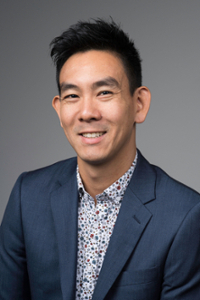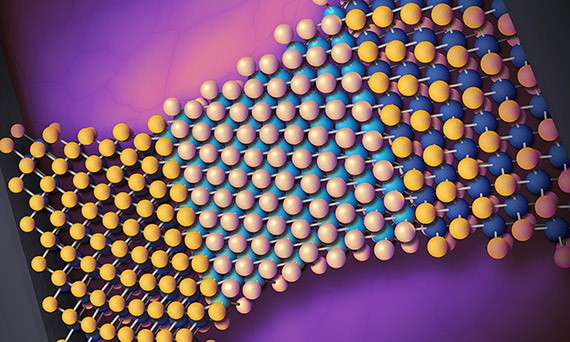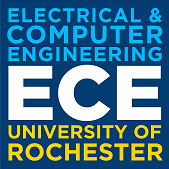Facutly Research News
Professor Stephen Wu’s Research Published in Nature Electronics

A team of Hajim School researchers developed a new form of computing memory that is fast, dense, and low-power by strategically straining materials that are as thin as a single layer of atoms. These new hybrid resistive switches developed in the lab of Stephen M. Wu, an assistant professor of electrical and computer engineering and of physics, are outlined in a study published in Nature Electronics.
“We’ve combined the idea of a memristor and a phase-change device in a way that can go beyond the limitations of either device,” says Stephen. “We’re making a two-terminal memristor device, which drives one type of crystal to another type of crystal phase. Those two crystal phases have different resistance that you can then store as memory.”
Stephen and his team of graduate students conducted the experimental work and partnered with researchers from our Department of Mechanical Engineering, including assistant professors Hesam Askari and Sobhit Singh, to identify where and how to strain the material. To learn more about this interesting development, go to the News Center.


